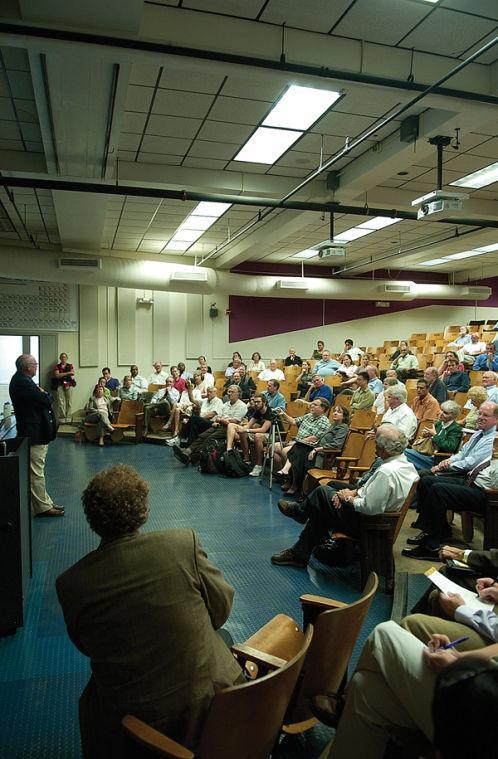Editor’s Note: A portion of this article was modified to correct a factual error.
Chancellor Michael Martin stressed the importance of assimilating the University into the community Tuesday at a forum on “Money and the Many Futures of LSU.”The forum, sponsored by the Faculty Senate, is meant to bring students, faculty and other members of the University community together with the chancellor to discuss important topics. Tuesday’s issue was financial. “We have a sober and serious topic,” said Kevin Cope, Faculty Senate president. “We will talk about not only the budget but the monetary concerns of the University in general.”Martin explained translating the University’s accomplishments into terms understandable and important to people who aren’t in academics is important in the quest to keep funding coming to the University.”People know why they want to widen I-10, because it’s in their life every day,” Martin said. “We don’t have a product as simple as a highway.”Martin said people outside the University’s community need to feel as if the University is benefiting them and the environment in Baton Rouge.”People view [the University] as a place with gates, like we are an elite group of academics that only speak to one another,” Martin said. “But the public has to appreciate the stuff that is important to the texture we’re creating [in the community].” But no matter how successful the community assimilation is, Martin said the ailing economy cannot be forgotten as a factor regarding funding.”We are living in the toughest economic times since the ’30s in the 47th worst state in the nation,” Martin said. To combat that, Martin mentioned a potential five-hundred-dollar-per-semester “flagship fee,” which would give the University the “latitude to raise revenue.””If the legislature can’t protect the flagship from further [financial] damage, they must give us the capacity to replace state dollars with dollars from students,” Martin said.Martin said he and LSU System President John Lombardi agree attention must be paid to the quality of the education students receive at the University, and compensation for that education should be appropriate for a flagship school.”Our students are smart enough to understand that you have to pay for quality,” Martin said. “If quality is compromised, their education loses value. This is the flagship, and you cannot sail the fleet without one.”Martin also discussed goals for increasing the University’s population of graduate students.”About 17 percent of our student body is graduate students,” he said. “That ought to be 22 or 23 percent for a flagship University.” A flagship fee would give the University more opportunities to offer incentives for potential graduate students, such as better housing, Martin said.—-Contact Ryan Buxton at [email protected]
Potential ‘flagship fee’ discussed
October 5, 2009





